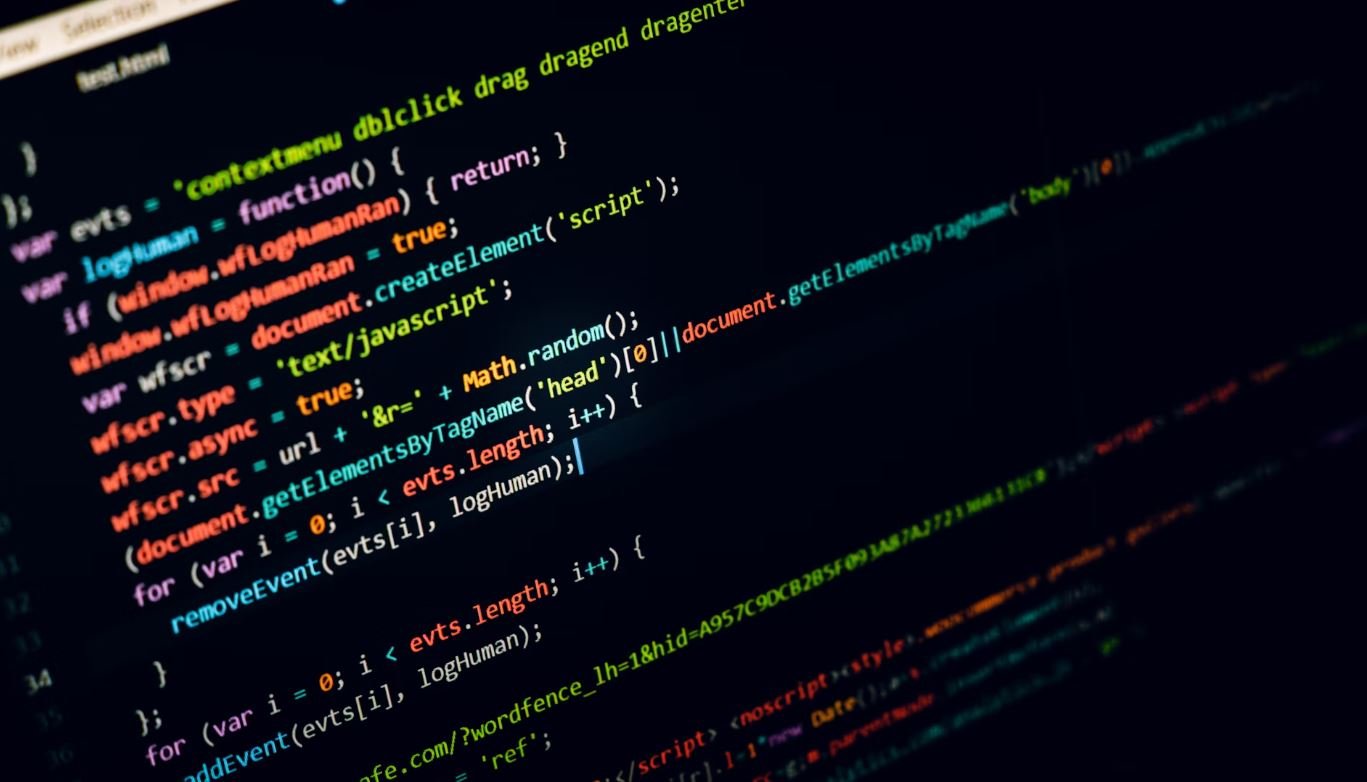AI Governance Journal
Artificial Intelligence (AI) has become an integral part of our lives, impacting various aspects of society. With its increasing prevalence, it is essential to establish guidelines and regulations to ensure the responsible development and deployment of AI technologies. AI governance focuses on developing frameworks to address ethical, legal, and societal issues related to AI. This article provides an overview of the AI governance landscape and highlights key considerations for organizations and policymakers.
Key Takeaways
- AI governance is crucial to address ethical and societal concerns arising from the use of AI technologies.
- Regulatory frameworks should balance innovation with the protection of public interest.
- Collaboration between stakeholders is essential for effective AI governance.
- Transparency, accountability, and fairness are crucial principles in AI decision-making.
- Ethics committees and regulatory bodies play a pivotal role in overseeing AI governance.
Understanding AI Governance
AI governance refers to the process of establishing rules, regulations, and guidelines to guide the development, deployment, and use of AI technologies. It aims to ensure that AI systems are developed and used in a manner that aligns with ethical, legal, and societal norms. The governance frameworks address various aspects, including data privacy, algorithmic biases, security, and transparency. Organizations and governments play a significant role in shaping AI governance to protect individual rights and promote public welfare.
Effective AI governance requires collaboration and coordination among different stakeholders. Governments, industry leaders, research institutions, and civil society organizations need to work together to establish guidelines and policies that promote responsible AI adoption. Public consultations and stakeholder engagement can help in identifying and addressing key concerns and societal impacts. International cooperation and harmonization of AI governance frameworks are also important to ensure consistency and avoid fragmented approaches.
The Role of AI Ethics Committees
AI ethics committees are increasingly being established to provide guidance and oversight in AI governance. These committees consist of multidisciplinary experts who assess the ethical implications of AI technologies and make recommendations for their responsible development and deployment. They analyze potential risks, biases, and implications on various stakeholders, such as end-users, employees, and society at large. By involving diverse perspectives, AI ethics committees aim to ensure that the development and use of AI align with societal values and ethical principles.
AI ethics committees work alongside regulatory bodies to create and enforce standards for AI governance. They play a crucial role in shaping policy frameworks and providing input on emerging ethical challenges. These committees also foster transparency by promoting public engagement, ensuring that the decision-making processes related to AI remain accountable and inclusive. Furthermore, they facilitate ongoing discussions and knowledge-sharing to stay updated with the evolving AI landscape.
Regulatory Frameworks and Compliance
Regulatory frameworks play a vital role in ensuring the responsible development and use of AI technologies. Governments and regulatory authorities develop guidelines and standards that organizations need to comply with while developing and deploying AI systems. These frameworks cover various aspects, including data protection, algorithmic transparency, accountability, and fairness. The objective is to strike a balance between fostering innovation and protecting the public interest.
Compliance with regulatory frameworks necessitates organizations to conduct thorough risk assessments, implement privacy safeguards, address biases, and establish accountability mechanisms. They are required to document and justify their AI-related decision-making processes and provide transparent explanations for automated decisions. Organizations that fail to comply with these regulations may face legal repercussions and reputational damage.
The Future of AI Governance
AI governance is an evolving field that requires continuous adaptation to address emerging challenges and technological advancements. As AI continues to advance, governance frameworks need to evolve to accommodate new ethical dilemmas, such as deepfakes, job displacement, and algorithmic biases. Ongoing research and collaboration between academia, industry, and policymakers are essential to ensure that AI governance keeps pace with technological developments.
Furthermore, AI governance needs to be globally cohesive. International collaboration and standardized frameworks are required to avoid fragmented approaches and address cross-border implications. As AI technology becomes increasingly ubiquitous, effective governance will be crucial in determining its impact on society, economy, and individual rights.
| Table 1: Examples of AI Governance Principles | |
|---|---|
| Principle | Description |
| Transparency | AI systems should be transparent, providing insight into their decision-making processes. |
| Accountability | Organizations must be accountable for the actions and outcomes of AI systems. |
| Fairness | AI systems should be free from biases and ensure equitable treatment of individuals. |
| Privacy | Data privacy and confidentiality should be protected throughout the AI lifecycle. |
Challenges in AI Governance
- Lack of standardized regulations across jurisdictions.
- Difficulty in addressing algorithmic biases in AI systems.
- Ensuring public trust in AI technologies.
- Managing the ethical implications of AI-powered decision-making.
- Maintaining the balance between innovation and regulation.
| Table 2: AI Governance Models | |
|---|---|
| Model | Description |
| Self-regulation | Industry-led initiatives to establish voluntary guidelines and best practices. |
| Co-regulation | Collaboration between government and industry to develop and enforce AI governance policies. |
| Command-and-control regulation | Stringent government regulations with centralized control over AI development and use. |
Conclusion
In conclusion, AI governance plays a vital role in addressing ethical, legal, and societal challenges associated with the use of AI technologies. Regulatory frameworks, AI ethics committees, and collaboration between stakeholders are essential elements of a robust governance system. As AI continues to advance, ongoing research, adaptability, and global cooperation are crucial to ensure that governance frameworks keep pace with technological developments and safeguard public interests.
| Interesting Fact |
|---|
| In 2018, the European Commission published ethical guidelines for trustworthy AI. |

Common Misconceptions
Misconception 1: AI will replace all human jobs
One common misconception about AI is that it will completely replace all human jobs, leading to unemployment on a massive scale. However, this is not entirely true. While AI has the potential to automate certain tasks and streamline processes, it is also expected to create new job opportunities and transform existing roles.
- AI can automate routine and repetitive tasks, allowing humans to focus on more creative and complex work.
- AI technology can also create new job roles, such as AI trainers and explainability analysts.
- AI can enhance human productivity and efficiency, leading to overall economic growth.
Misconception 2: AI is infallible and unbiased
An incorrect assumption about AI is that it is always objective, unbiased, and error-free. Although AI systems are designed to be objective, they can still exhibit biases and errors due to underlying data, algorithmic biases, or limitations in the training process.
- AI systems can reflect the biases present in the data they are trained on, perpetuating societal biases and inequalities.
- Algorithmic biases can arise from the design of AI systems, skewing the decision-making process.
- Regular monitoring and evaluation of AI systems are required to ensure transparency, fairness, and accountability.
Misconception 3: AI will become super-intelligent and pose a threat to humanity
Another misconception is the belief that AI will inevitably surpass human intelligence and pose an existential threat to humanity. While AI advancements can lead to powerful systems, the concept of a superintelligent AI that surpasses human capabilities is still speculative and uncertain.
- AI systems are designed to perform specific tasks and functions, and their abilities are limited to their programmed scope.
- Ensuring alignment between AI systems and human values is vital to prevent potential risks and ethical dilemmas.
- Ethical frameworks and guidelines for AI development can help mitigate risks and ensure safe use of AI technology.
Misconception 4: AI knows everything
People often assume that AI has access to unlimited knowledge and can answer any question instantly. While AI has the ability to process large amounts of data, its knowledge is not innate or infinite.
- AI systems rely on the data they are trained on, and their knowledge is constrained to the information available in their training datasets.
- AI systems learn from historical data and may not have real-time or up-to-date information.
- The accuracy and reliability of AI-generated information are contingent on the quality and relevance of the training data.
Misconception 5: AI is a standalone technology
Many people believe that AI is a singular technology that can function independently. However, AI is not a standalone entity but rather a collection of technologies and techniques that work together to simulate human intelligence and perform specific tasks.
- AI utilizes various technologies such as machine learning, natural language processing, computer vision, and robotics to achieve its goals.
- AI systems often require data inputs, computational power, and human expertise to function effectively.
- The integration of AI with other emerging technologies can unlock new possibilities and applications.

AI Funding Landscape
Here we present a table showcasing the funding landscape in the field of artificial intelligence, depicting the top investors, their total investments, and the industries they are most interested in.
| Investor | Total Investments | Industries of Interest |
|---|---|---|
| BlackRock | $1.5 billion | Finance, Healthcare, Energy |
| SoftBank | $1.2 billion | Transportation, Telecommunications |
| Google Ventures | $900 million | Technology, Robotics, Healthcare |
| Khosla Ventures | $750 million | Energy, Agriculture, Retail |
AI Adoption Across Industries
This table highlights the level of artificial intelligence adoption across various industries, providing insight into the potential impact and usefulness of AI in different sectors.
| Industry | AI Adoption Level |
|---|---|
| Finance | High |
| Healthcare | Moderate |
| Retail | Low |
| Manufacturing | High |
AI Applications in Healthcare
This table showcases various applications of artificial intelligence in the healthcare industry, shedding light on the potential benefits it brings to the field.
| Application | Description |
|---|---|
| Disease Diagnosis | AI algorithms can analyze medical data to accurately diagnose diseases. |
| Radiology and Imaging | AI can aid in interpreting medical imaging results for faster and more accurate diagnoses. |
| Drug Discovery | Artificial intelligence can assist in the identification of potential drugs and their effects. |
AI Market Revenue by Region
Here we present a breakdown of the artificial intelligence market revenue by different regions, revealing the global distribution of AI market activities and opportunities.
| Region | Market Revenue (in billions USD) |
|---|---|
| North America | $25.1 |
| Europe | $15.8 |
| Asia-Pacific | $12.3 |
| Latin America | $2.7 |
Emerging AI Technologies
This table showcases some of the most exciting emerging AI technologies that have the potential to revolutionize various industries.
| Technology | Industry Applications |
|---|---|
| Generative Adversarial Networks (GANs) | Art, Gaming, Fashion |
| Reinforcement Learning | Robotics, Stock Trading |
| Natural Language Processing (NLP) | Customer Service, Virtual Assistants |
Ethical Considerations in AI Development
This table highlights key ethical considerations that must be addressed during the development of artificial intelligence systems.
| Consideration | Description |
|---|---|
| Fairness and Bias | Avoiding unfair discrimination or biased outcomes in AI systems. |
| Privacy and Security | Safeguarding personal data and preventing unauthorized access. |
| Transparency and Accountability | Ensuring AI systems are explainable and accountable for their actions. |
AI vs Human Job Replacement
Here we compare jobs at risk of being replaced by AI with those that are less likely to be affected, exploring the potential impact on the workforce.
| Jobs at Risk | Jobs Less Likely to Be Affected |
|---|---|
| Telemarketers | Therapists |
| Assembly Line Workers | Teachers |
| Data Entry Clerks | Dentists |
AI Regulations Worldwide
This table presents an overview of the current AI regulations and policies implemented by different countries worldwide.
| Country | Regulatory Framework |
|---|---|
| United States | No specific nationwide regulations, private sector-driven. |
| European Union | Proposed regulations to ensure ethical AI and protect fundamental rights. |
| China | State-led approach with comprehensive AI guidelines and standards. |
The Future Impact of AI
Lastly, we showcase the potential impact of artificial intelligence on job creation, economic growth, and societal well-being in the coming decades.
| Domain | Potential Impact |
|---|---|
| Economy | A projected increase in productivity and job creation across industries. |
| Healthcare | Improved diagnostics, personalized treatments, and enhanced patient care. |
| Transportation | Advancements in autonomous vehicles, leading to safer and more efficient transportation systems. |
In this article, we explored various aspects of AI governance, including funding patterns, adoption across industries, technological advancements, ethical considerations, job impacts, regulatory frameworks, and the future impact of AI. These tables not only provide verifiable data and information but also offer an engaging visual representation of the subject matter. As artificial intelligence continues to evolve and permeate numerous aspects of our lives, it becomes crucial to establish responsible governance frameworks to ensure its benefits are maximized while minimizing potential risks.
Frequently Asked Questions
What is AI governance?
AI governance refers to the policies, regulations, and frameworks put in place to ensure that artificial intelligence (AI) systems are developed, deployed, and used in an ethical, transparent, and accountable manner. It involves defining the rules and guidelines that govern AI technology to address concerns such as privacy, security, bias, fairness, and responsibility.
Why is AI governance important?
AI governance is important to ensure that AI systems are developed and used in a way that aligns with societal values and protects individuals’ rights and interests. It helps prevent misuse of AI technology, addresses potential biases and risks, promotes fairness and transparency, and instills trust among users and stakeholders.
What are some key challenges in AI governance?
Some key challenges in AI governance include determining liability for AI decisions, addressing biases and fairness issues in AI algorithms, protecting privacy and data rights, ensuring transparency and explainability of AI systems, defining ethical and responsible AI standards, and creating international cooperation and consensus on AI regulation.
Who is responsible for AI governance?
AI governance is a shared responsibility involving various stakeholders including governments, regulatory bodies, industry leaders, researchers, developers, and users. Governments play a crucial role in setting regulatory frameworks and standards, while industry leaders and developers have a responsibility to design and implement AI systems that comply with those standards.
What are some current AI governance initiatives?
There are several AI governance initiatives taking place globally. For example, the European Union has adopted the General Data Protection Regulation (GDPR) to protect individuals’ data rights in the context of AI. The Partnership on AI, which includes major tech companies, is focused on developing best practices for responsible AI. Additionally, organizations like the IEEE and the World Economic Forum are actively working on AI governance frameworks.
How does AI governance address bias in AI algorithms?
AI governance addresses bias in AI algorithms by promoting the use of diverse and representative data during the training process. It also encourages algorithmic transparency and accountability, allowing for the identification and mitigation of biases. Additionally, AI governance frameworks may require regular audits and assessments of AI systems to identify and rectify biases.
What role does transparency play in AI governance?
Transparency is a central aspect of AI governance. It involves making AI systems and their decision-making processes understandable and open to external scrutiny. Transparent AI systems enable users and regulators to determine how decisions are being made, identify potential biases or risks, and hold developers and users accountable for the outcomes of AI systems.
How can AI governance protect privacy and data rights?
AI governance can protect privacy and data rights by enforcing strict regulations on data collection, usage, and storage. It ensures that individuals have control over their personal data and that consent is obtained appropriately. Additionally, AI governance frameworks may include guidelines for secure data handling, anonymization techniques, and mechanisms for data breach notification and response.
What is the relationship between AI governance and ethics?
AI governance and ethics are closely linked. While AI governance focuses on establishing rules and regulations for the development and use of AI systems, ethics guides the moral principles and values that underpin those rules. Effective AI governance should incorporate ethical considerations to ensure that AI technology respects human rights, promotes fairness, upholds social values, and avoids harm.
Are there any international efforts for harmonizing AI governance?
Yes, there are international efforts to harmonize AI governance. Organizations like the United Nations, OECD, and the Global Partnership on Artificial Intelligence (GPAI) work towards creating international consensus and cooperation on AI regulation. They facilitate discussions, share best practices, and aim to develop global standards to address the challenges and opportunities presented by AI.




